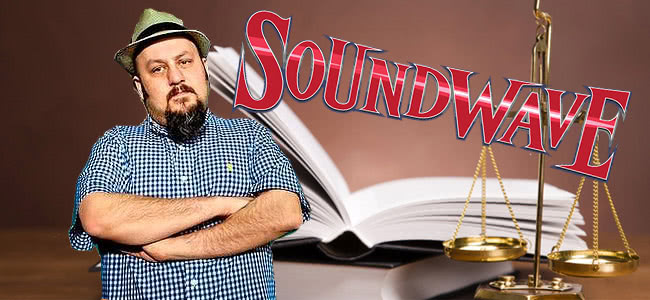While to outsiders it seemed as though the collapse of Soundwave was a sudden implosion brought on by mysterious forces, in reality it was a slow disintegration that stretched all the way back to the success of the legendary 2013 festival.
Where most fans came on board was in the wake of the cancellation of Soundwave 2016 and the bitter war of words between Soundwave founder Arash “AJ” Maddah and ticketing agency Eventopia, with a dispute ensuing about who owed ticket-holders refunds.
As Tone Deaf reported at the time, both parties began trading accusations in what seemed at the time would be a never-ending passing of the buck. All the while, fans could do little more than watch the carnage unfold and wonder if they would ever see their $175 again.
While Eventopia eventually promised to refund all tickets, the Soundwave fiasco is far from over, and according to a new report by The Australian, it could even threaten to change the way the Australian events industry is governed.
After being drawn into the mire ensconcing Soundwave and Eventopia by angry ticket-holders, NSW Fair Trading embarked on an investigation and decided last week to refer the issue to the Australian Securities & Investments Commission.
“I’ve got concerns at the way the event was conducted, it needs a careful examination of what’s occurred,” Innovation and Better Regulation Minister Victor Dominello recently told The Weekend Australian.
Mr Dominello said that while consumers are protected by laws already in place, corporate governance and the behaviour of the companies involved has been below par and a new standard for the Australian events industry ought to be enacted.
“We need to look at some of the failures and there needs to be greater scrutiny of corporations law — all the issues are corporate governance issues,” he said. “What distresses me is the number of companies going the insolvency route. We really need to work to get a much better event standard.”
“We really need to work to get a much better event standard.”The “insolvency route” the minister referred to involves companies declaring insolvency to avoid paying creditors, of which Soundwave has its share. According to ASIC documents, creditors have logged $26 million in claims against Soundwave 2015.
As Tone Deaf first reported, in addition to contractors, the list of creditors includes every band on the Soundwave 2015 lineup, such as Soundgarden, who are owed $2.1m; Slipknot, owed $1.6m; and the Smashing Pumpkins, who are owed $1.2m.
In August 2015, staging company World Stages, who are themselves insolvent, began court proceedings to wind up the Soundwave company. Maddah responded by putting the company into administration in late September.
Administrators Deloitte initially estimated the total amount owed at about $26 million and to keep the festival going, Maddah struck a deed of company arrangement, meaning a new company, Hounds of Hell Pty Ltd, would run Soundwave 2016, with half the profit going to creditors.
Of course, we now know how that went. Further muddying the waters is the Soundwave ticketing debacle, which came as the result of an unconventional contract Maddah had signed with Eventopia, who forwarded him 80 percent of ticket sales.
[include_post id=”467811″]
The $2.66m sum was used to cover marketing and band and venue deposits, with Eventopia retaining 20 percent (about $665,000) in trust. As a result, refunds for ticket-holders will have to come out of Eventopia’s pockets.
According to The Australian, the ticketing code of practice formulated by industry body Live Performance Australia requires sellers to retain in trust all income from ticket sales, in case an event is cancelled.
Eventopia, a boutique platform and sister company of industry giant Ticketek, is not an LPA member, though Ticketek is. According to LPA president Andrew Kay, the Soundwave fallout has sent shockwaves through the industry.
“This issue is of concern because when people buy tickets they expect the money to be held in trust,” he told The Australian. “More and more ticketing platforms have entered the market and they’re not Australian companies. What’s occurred with Soundwave has really focused everyone’s mind on this issue.”




































